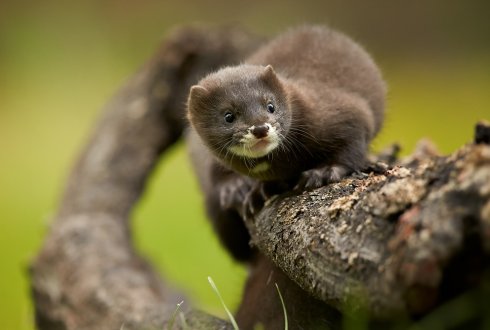Further research to determine source, but assumption is people working at farms infected the animals.
April 28, 2020

Several mink have tested positive for COVID-19 at two mink farms in the Netherlands after the animals showed various symptoms, including respiratory problems, according to an announcement from Wageningen University Research (WUR).
Further research will be conducted to determine the source of the infections, the WUR announcement said. Because some employees had COVID-19 symptoms at both companies, it is assumed that people have infected the animals.
Previous research has shown that ferrets are susceptible to SARS-CoV2; therefore, it was already assumed that mink might be susceptible too, WUR said.
Currently, there are no indications that farm animals or pets play a role in the spread of COVID-19.
Carola Schouten, Netherlands minister of agriculture, nature and food quality, announced reporting obligations as of April 26 for mink farmers, veterinarians and people in related research institutions. Since other animals in livestock farming do not appear to be susceptible to the virus, the notification requirement is only imposed for mink farms, the announcement said.
WUR said to prevent the possible spread of the virus to other farms, animals and manure may not be transported from infected farms.
Knowledge of how the disease develops on the infected farms is important because this knowledge can be used to better understand the disease and how it is spreading in animals and humans, WUR said. Therefore, samples are being collected from sick and healthy animals for further research. It is not expected that the virus will spread over longer distances. Nevertheless, as a precaution, air and dust samples were also collected in the vicinity of the farms in order to research whether virus can be detected in these samples, according to the announcement.
WUR said, according to the Netherlands' National Institute for Public Health & the Environment, based on current knowledge about COVID-19, the mink farms do not pose a risk of further spread to people. Human to animal contamination is possible, but the impact of this mink farm infection on human health is currently considered negligible. Human-to-human contamination is the driving force behind the current coronavirus pandemic.
The Wageningen Bioveterinary Research performed confirmation tests on samples from the mink. In addition, further research is being started in collaboration with GD Animal Health, Utrecht University and Erasmus MC.
You May Also Like

.png?width=300&auto=webp&quality=80&disable=upscale)

